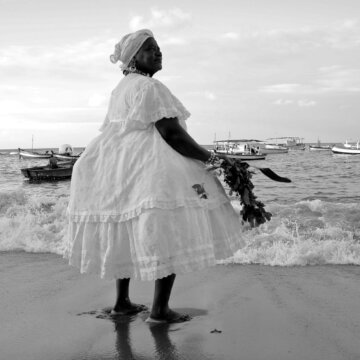- About
- Topics
- Story
- In-Depth
- Picks
- Opinion
- News
- Donate
- Signup for our newsletterOur Editors' Best Picks.Send
Read, Debate: Engage.
| topic: | Racism |
|---|---|
| located: | Brazil, Ecuador, Costa Rica, Uruguay, Mexico |
| editor: | Ellen Nemitz |
Black History month, celebrated every February in countries such as the US and Canada, alludes to the birthdays of two American anti-slavery figures: Abraham Lincoln and Frederick Douglass. Slavery has also had a crucial role in Latin American history and its legacy is still alive nowadays, more than 130 years after the last abolition of slavery in the region, which happened in Brazil.
Brazil was not only the last one to ban this kind of human exploitation, in 1888, but also the country with the highest number of enslaved Africans: nearly 4.8 million African people were forcefully brought from their homelands to Brazil in unwholesome ships to work in farms or cities under cruel conditions. By comparison, according to database Slave Voyages (compiled by the fact-checking agency Publica), the US received 388,746 slaves from Africa in the same analysed period (from the 16th to the 19th century).
Despite having formally achieved the same rights as their former oppressors, black people still experience the shadows of structural racism. One example is the recent story of a musician who faced a violent approach from the police because his luxury car was considered "suspicious."
"It is obvious that I understand the challenges of being a public safety officer," the Brazilian tenor Jean William wrote on Instagram. "The issue is this structure that leads to extreme actions triggered by a system structured in the distinction by skin color. They are tentacles of the perpetuation of prejudice and need to be exterminated."
William's economic situation is an exception, however. According to a Brazilian Institute of Geography and Statistics report, black people represent less than one third of Brazil's top 10 percent of richest people, while the poorest cohort is made up of 75.2 percent black. The inequalities based on race are also visible in factors such as the poverty line, illiteracy rates, occupation of management positions in companies, unemployment, political representation, salaries and even violence and murderer rates. In all of them, being black means losing opportunities, or even one’s life.
Moreover, the Pan American Health Organization found out that unequal social and economic conditions damage black people's health. Among the issues affecting these communities in the region, the agency highlights the higher rates of maternal mortality for afro-descendant women in Ecuador, Colombia and Brazil, and the limited access to drinking water affecting more black people than white in Uruguay and Nicaragua.
The Brazilian historian Laurentino Gomes once affirmed in an interview regarding the release of his book about slavery and racism that the second abolition must aim to promote "adequate public policies" to ensure that "all Brazilians have the chance to express their talents, vocations, with all their potential." Although his statement is regarding Brazil, this should be the goal of all countries which once relied on slavery and could not repair the damages done to this population so far.
In this Black History Month, we have at least one thing to celebrate: several Latin American countries have already ratified the Inter-American Convention against Racism, Racial Discrimination and Related Forms of Intolerance, such as Brazil, Costa Rica, Ecuador, Uruguay and Mexico. In Brazil, it has just achieved constitutional status by decree. As said by the public prosecutor's office, an institution committed to human rights in Brazil, countries which sign the treaty commit themselves to "the total and unconditional eradication of racism, racial discrimination and all forms of intolerance." The intention and legal regulation to stop racism are there, but it is yet to be seen when this will be practiced and enforced to make it a reality for Latin Americans.
Photo by Tiago Celestino

